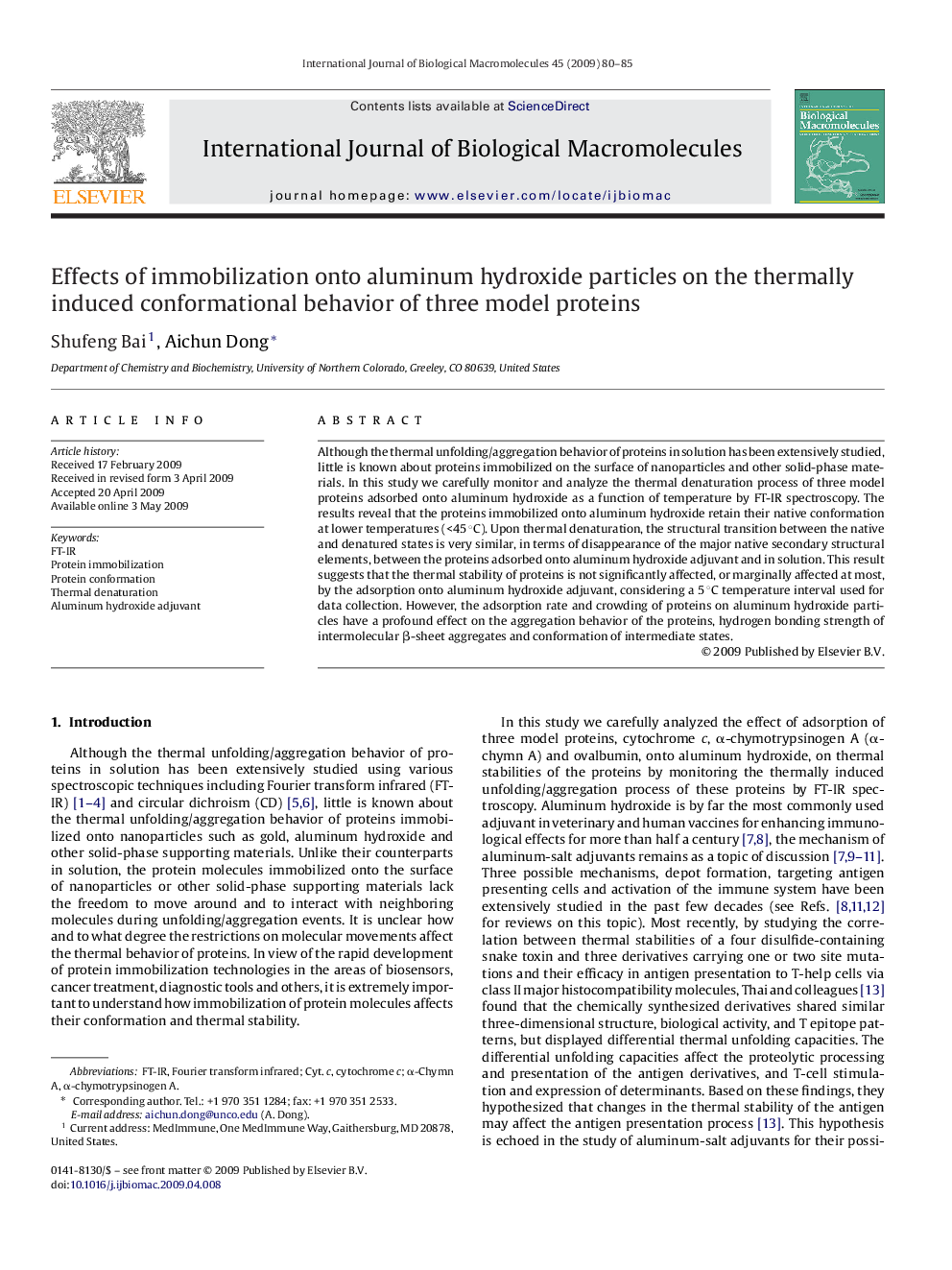| Article ID | Journal | Published Year | Pages | File Type |
|---|---|---|---|---|
| 1987823 | International Journal of Biological Macromolecules | 2009 | 6 Pages |
Although the thermal unfolding/aggregation behavior of proteins in solution has been extensively studied, little is known about proteins immobilized on the surface of nanoparticles and other solid-phase materials. In this study we carefully monitor and analyze the thermal denaturation process of three model proteins adsorbed onto aluminum hydroxide as a function of temperature by FT-IR spectroscopy. The results reveal that the proteins immobilized onto aluminum hydroxide retain their native conformation at lower temperatures (<45 °C). Upon thermal denaturation, the structural transition between the native and denatured states is very similar, in terms of disappearance of the major native secondary structural elements, between the proteins adsorbed onto aluminum hydroxide adjuvant and in solution. This result suggests that the thermal stability of proteins is not significantly affected, or marginally affected at most, by the adsorption onto aluminum hydroxide adjuvant, considering a 5 °C temperature interval used for data collection. However, the adsorption rate and crowding of proteins on aluminum hydroxide particles have a profound effect on the aggregation behavior of the proteins, hydrogen bonding strength of intermolecular β-sheet aggregates and conformation of intermediate states.
